Praise for Evangelical Catholicism
A learned and lucid commentator on Catholicism,... [Weigel] brings akeenly developed sense of the workings of the Church to his analysis....Though written long before Benedict made his surprise announcement, thebook is nonetheless a timely guide to the issues that the cardinals inconclaveand the next popemust confront. Wall Street Journal
[Weigel is] our greatest observer of the global Catholic Church.... If Icould gain entrance into the conclave, I would smuggle in enough copiesof Evangelical Catholicism to place one on the chair of each elector, in hopesthat they would adopt this masterpiece of Catholic history and thought asa possible guide for the Churchs mission in the centuries ahead. National Catholic Register
A call for pride, sincerity and depth in Catholic life and community....The bulk of Weigels book examines how this new Catholicism can be appliedto the episcopate, priesthood, liturgy, laity, etc. The author makesmany important points, and his call toward a deeper spirituality and senseof mission in Catholic life is laudable. Kirkus
This sparkling read puts all the old Church-labelsliberal vs. conservative,progressive vs. traditionalist, pre- vs. post-Vatican IIin the shredder. Nowthere is only one valid adjective for all of us: evangelical! Simply put, thismeans we take our baptismal promises with the utmost seriousness. Likethe Samaritan woman, weve met a manJesuswho has changed ourlives. Timothy Cardinal Dolan, Archbishop of New York
Evangelical Catholicism is a remarkable intellectual and spiritual achievement,even by George Weigels dauntingly high standards. It is nothing lessthan a blueprint for the re-evangelization of the West and the re-invigorationof the rest of the world. Mary Eberstadt, author of Adam and Eve after the Pill andThe Loser Letters
A rare book that can transform culture and communities from the insideout, beginning with the humble premise of evangelization: to proclaimin word and deedthe good news of Jesus Christ. No stone is unturned,no promise or issue within the Church and her members is ignored in thisexcellent, well-thought-out guide for reform-based evangelization. Carl A. Anderson, Supreme Knight of the Knights of Columbus
A laudable hunger to relight the Churchs missionary fires is the core ofEvangelical Catholicism, but good intentions need practical blueprints iftheyre going to work. George Weigel has gotten that conversation started inhis typically lucid, provocative fashion, and we are all in his debt. John L. Allen, Jr., Associate Editor, The Boston Globe, andauthor of The Global War on Christians
Weigel at his astringent and prophetic best. George Cardinal Pell, Archbishop of Sydney
This remarkable book offers nothing less than a map and compass for menand women determined to take up the challenge of living the Catholic faithin its fullness under 21st-century conditions. With its bold call for deep reformin every single corner of the Church, Evangelical Catholicism is sure toprovoke lively discussion. The books proposals for true renewal are presentedwith the clarity and verve that have made George Weigel a peerless advocateof the courage to be Catholic. Mary Ann Glendon, author of The Forum and the Tower:How Scholars and Politicians Have Imagined the World,from Plato to Eleanor Roosevelt
George Weigel has been the leading diarist of authentic Catholic renewalits progress, detours, personalities, and hopesfor 30 years. In EvangelicalCatholicism he turns his extraordinary skills to the needs of the Church inthe coming decades, calling us back to the missionary vocation we receivedat baptism and offering us a road map to faithful, vigorous Church reform.Rich in its vision, engaging in style, on target in its counsel and invaluablefor anyone trying to understand the Church and her challenges in the 21stCentury, this book should not be missed. Charles J. Chaput, O.F.M. Cap., Archbishop of Philadelphia
A challenging, no-nonsense book that summons the Catholic Church topropose the Gospel without compromise in an ardent, joyful embrace of thenew springtime of faith preached by John Paul II and Benedict XVI. Mario Paredes, Presidential Liaison for Roman Catholic Ministries,American Bible Society
Catholics, especially bishops and priests, who are looking for an insightfuland dynamic profile of the Church of the New Evangelization need to readthis book soon. Philip Tartaglia, Archbishop of Glasgow
A timely, accessible and unusually insightful work. Don J. Briel, Koch Chair in Catholic Studies,University of Saint Thomas
EVANGELICAL
CA

HOLICISM
EVANGELICAL
CA

HOLICISM
DEEP REFORM IN THE
21 ST-CENTURY CHURCH
GEORGE WEIGEL
BASIC BOOKS
A Member of the Perseus Books Group
New York

S IX DAYS AFTER EVANGELICAL CATHOLICISM WAS PUBLISHED, POPE Benedict XVI announced his intention to abdicate the Office of Peter.That dramatic decision, for which there was no true historical analogy,drew to a close the transitional era in the history of the Church that hadbegun 135 years earlier with the election of Pope Leo XIII. At the sametime, the departure from office of the last pope to have been an influentialfigure at the Second Vatican Council opened the door to a new momentin the story of Catholicism and its mission to and for the world.
Leo XIII set in motion dynamics of Catholic reform that, not withoutdifficulty, reached a high moment of ecclesiastical drama at the SecondEcumenical Council of the Vatican, which was solemnly opened by PopeJohn XXIII on October 11, 1962, and solemnly closed by Pope Paul VIon December 8, 1965. Vatican II, an explosive, seismic event in the life ofthe Church, was given an authoritative interpretation by Pope John PaulII and by Pope Benedict XVI, both men of the Council; their pontificatesshould be understood as a continuous, comprehensive effort to deepenthe Churchs self-understanding, drawn from Vatican II, as a communionof disciples in mission. As Benedict XVI left Peters Chair on February28, 2013, the Church was palpably living through a moment of profoundhistorical transition: the transition from Counter-Reformation Catholicism,in which both Karol Wojtya and Joseph Ratzinger had beenformed, to the Catholicism of the New Evangelization that these twomen of genius, John Paul II and Benedict XVI, had proclaimed.
Then, thirteen days after Benedicts abdication took effect, the Collegeof Cardinals elected as Bishop of Rome a man who embodies manydimensions of the Evangelical Catholicism of the future, Jorge Mario Bergoglio, S.J., the archbishop of Buenos Aires, who took the papal nameFrancis.
Bergoglios ministry in his native Argentina, as both priest andbishop, was built upon the conviction that a kept Churcha Churchkept by either legal establishment or cultural habithad no future,and indeed deserved to have no future, for such a Church had grownslack in its proclamation of the Gospel and in its witness to Jesus Christ,the answer to the question that is every human life. In a wide-rangingconversation in May 2012, during which we discussed many of thethemes in Evangelical Catholicism, I noted to Cardinal Bergoglio that hewas perhaps the first senior Latin American churchman I had ever metwho had not complained to me about sheep-rustling by well-fundedNorth American evangelical and Pentecostal Protestants. The cardinalsreply was crisp and to the point: when Catholicism lost the allegiance ofits faithful in Latin America, that was because the Catholic Church hadforgotten to proclaim Christ the Lord and had failed to offer friendshipwith him as the royal road to human happiness and flourishing.
Next page

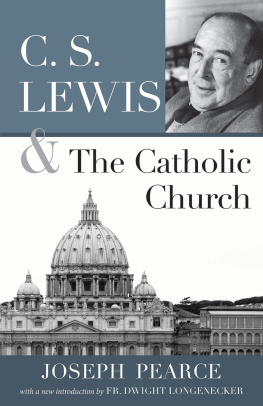

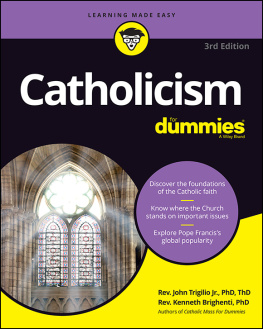
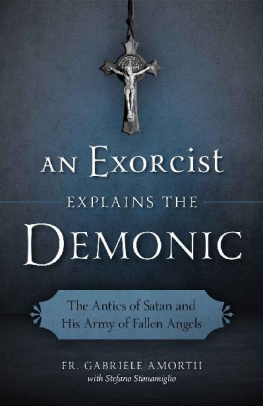

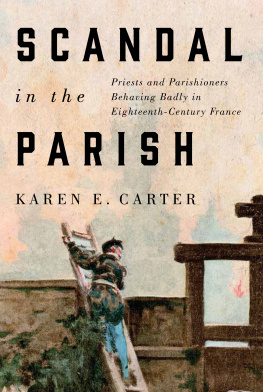


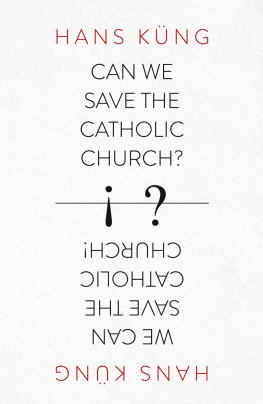
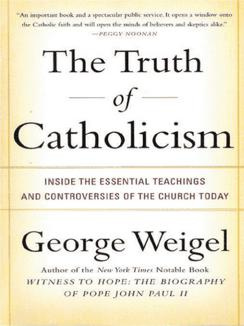
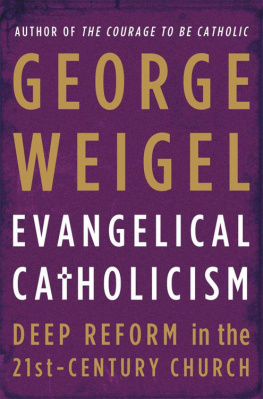

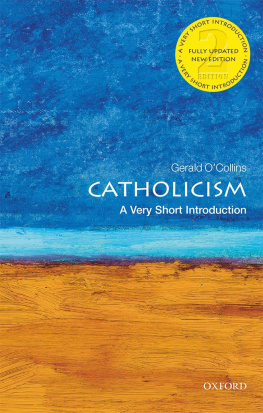
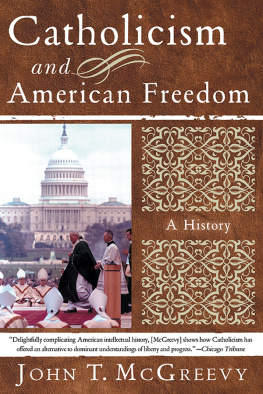
 HOLICISM
HOLICISM HOLICISM
HOLICISM